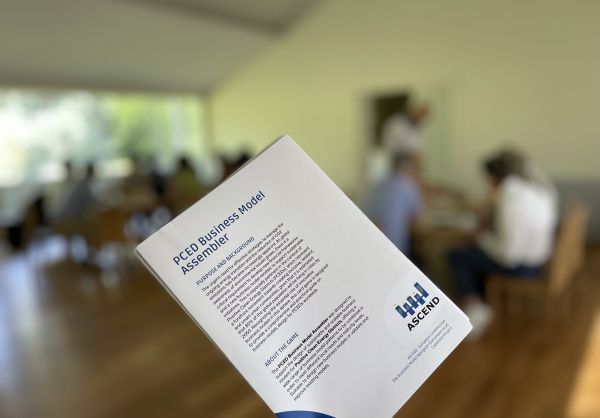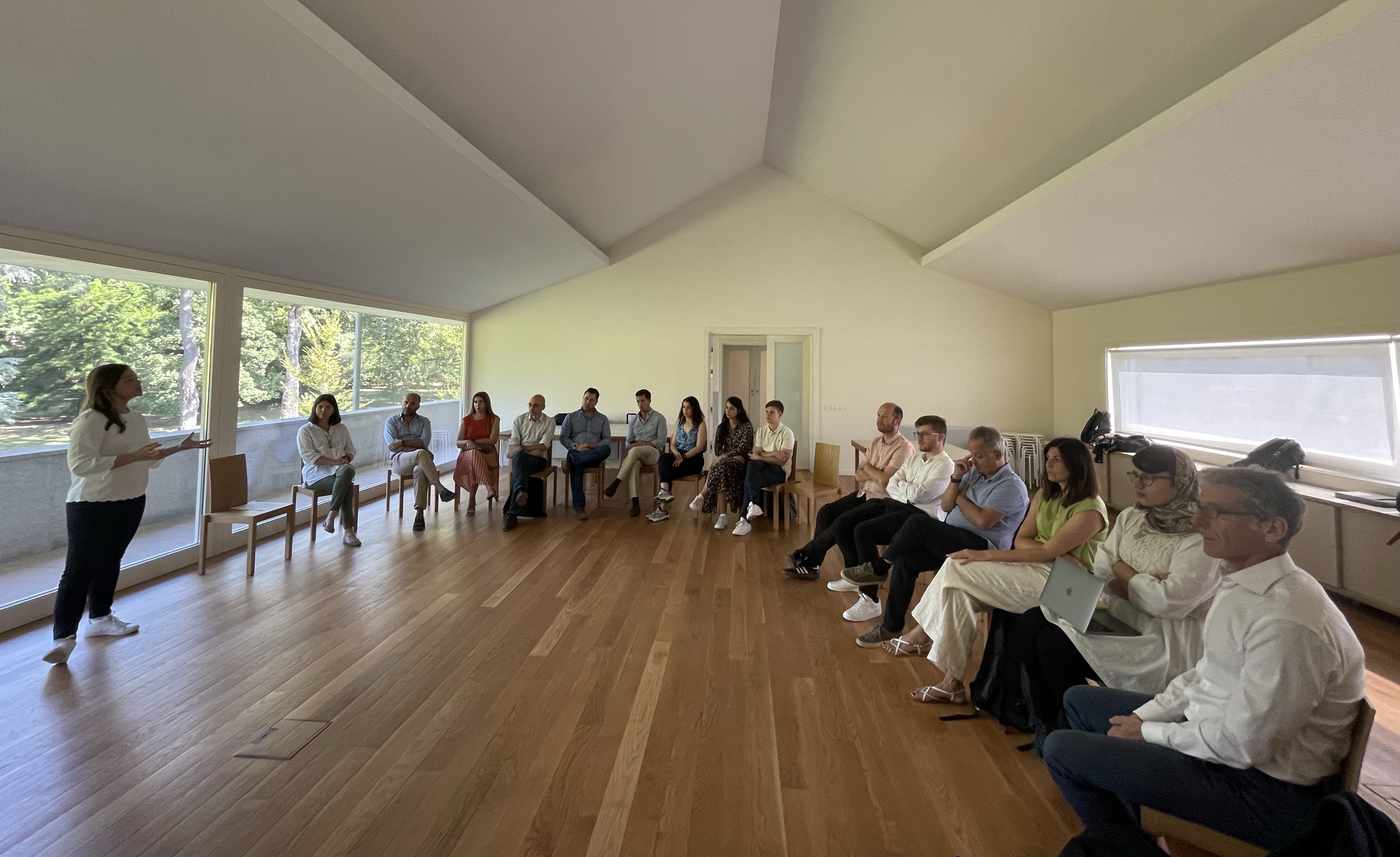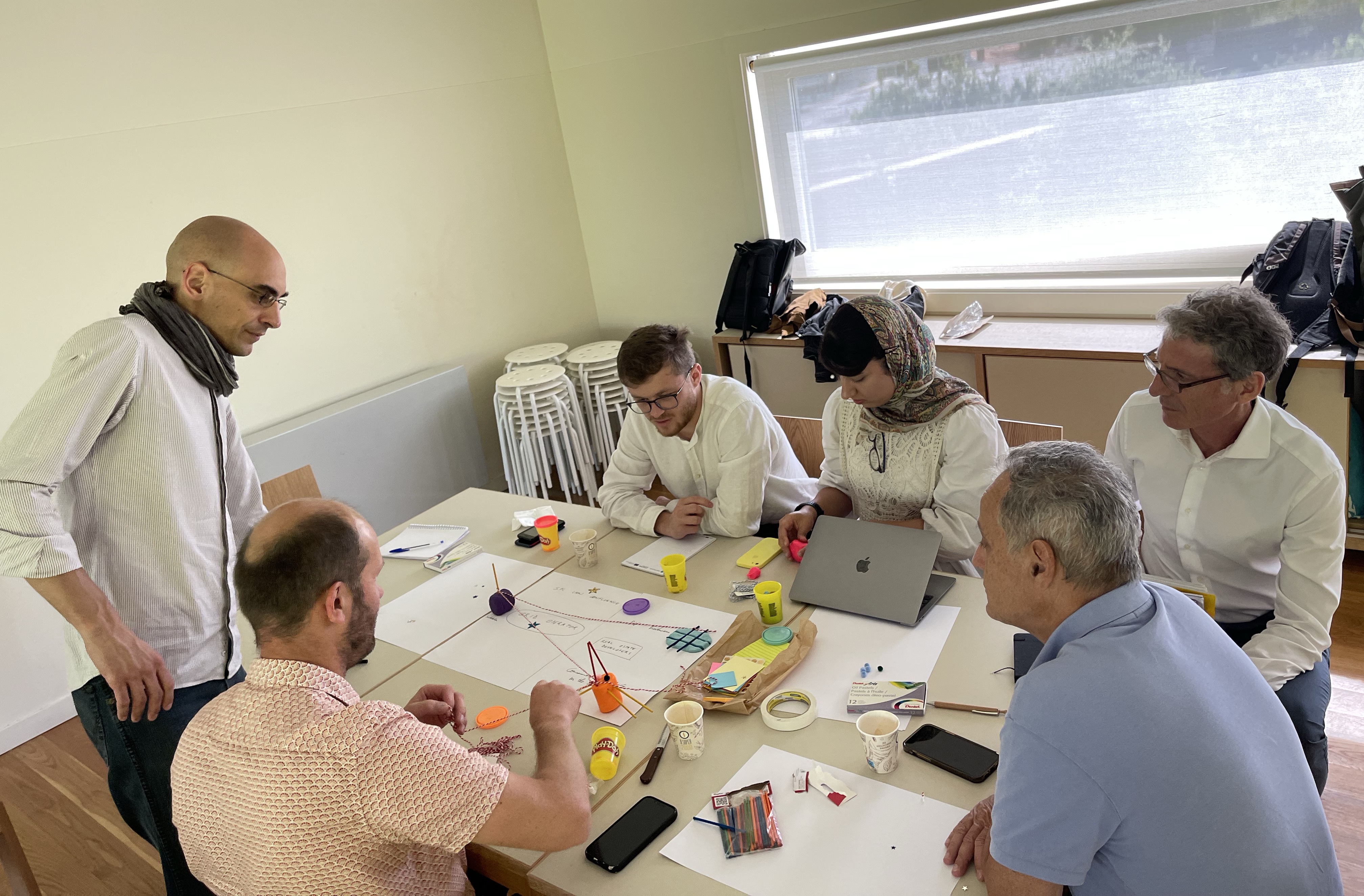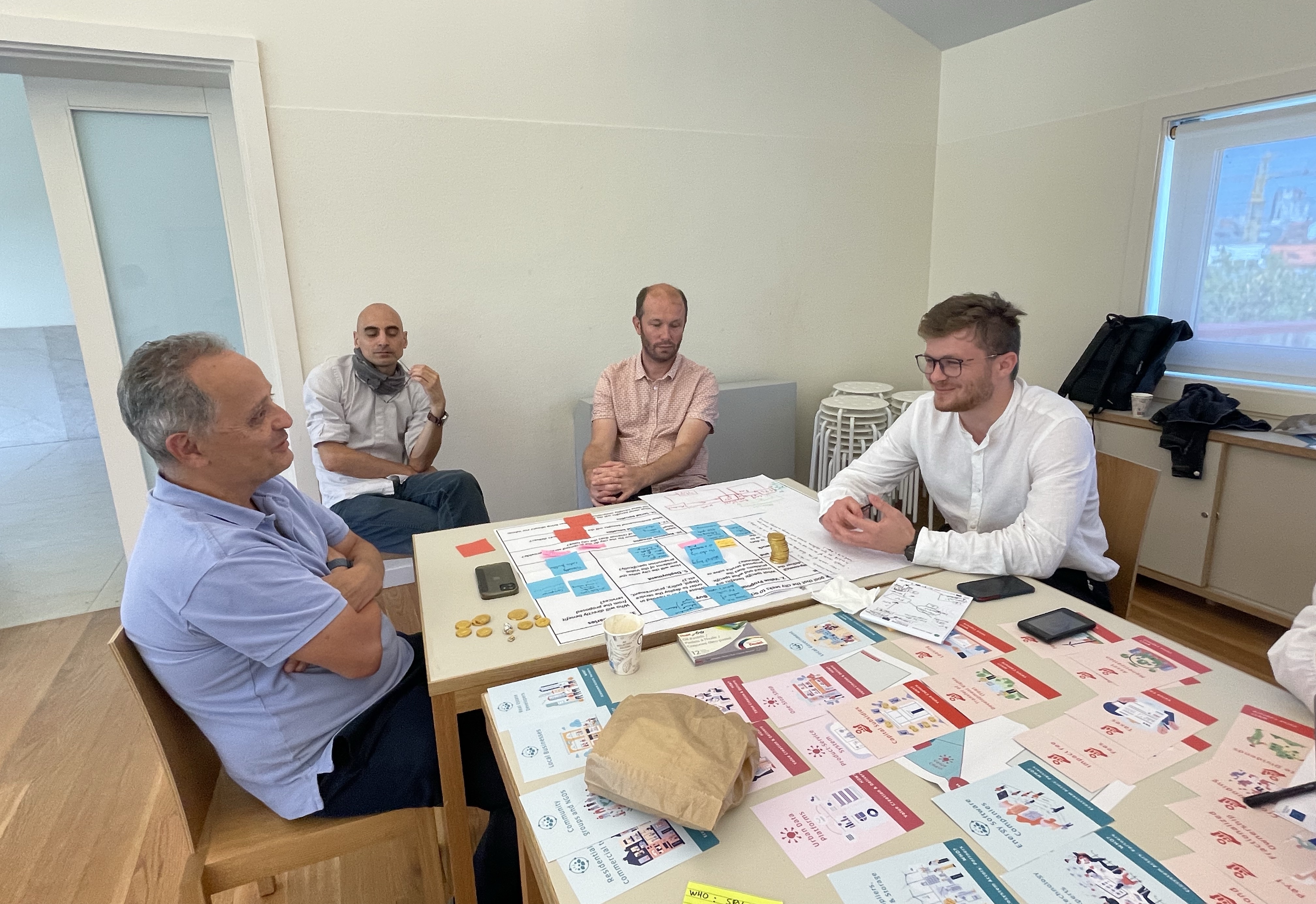
The city of Porto hosted a workshop on "Business Model Innovation for Positive Energy Districts (PCEDs)" on 3 July 2024. This collaborative event, part of the ASCEND project, brought together key stakeholders from Porto and Lyon to explore the complexities of scaling up energy community solutions.
The workshop was organised as a practical exercise in the business model innovation process. Selina Lorenz and Monica Barroso from the University of St. Gallen introduced the PCED Business Model Assembler card game—a modular toolbox designed to assist in the design and scaling of business models for PCEDs. The game, a significant development under Task 5.5 of the ASCEND project, aims to provide a hands-on, engaging approach to understanding and implementing business models for energy communities.
Engaging Collaboration and Hands-On Learning
The workshop featured a comprehensive presentation of the business model using the City Canvas, followed by a dynamic creative session. Participants were divided into two groups, representing Porto and Lyon, to develop and compare business model prototypes tailored to their respective cities. The goal was to analyse the findings and draft a detailed three-month timeline for the next steps in their projects.
The event provided a unique platform for city decision-makers and solution owners to familiarise themselves with the business model concept, experiment with the card game, and tackle implementation challenges. The interactive nature of the workshop fostered rich exchanges between stakeholders, highlighting the diverse perspectives and innovative approaches of each city.
Participant Feedback: A Mix of Enthusiasm and Constructive Criticism
The feedback from participants was extremely positive, with many praising the opportunity for face-to-face interaction and detailed discussions. Quotes from attendees included:
- “Great interaction and exchange amongst cities!”
- “I liked that it was a physical meeting—getting to know the Porto team and delving into the details of each project using the new card game dedicated to PCED.”
- “The interaction between different stakeholders with diverse perspectives and contexts was invaluable.”
However, some participants also noted areas for improvement:
- “Cities could try to investigate the categories of economic flows involved in the prototype more thoroughly.”
- “It is challenging to cover everything in a single day. A longer workshop or multiple sessions might be beneficial.”
- “The timing of the workshop could have been better. Given the extensive work already undertaken by Porto and Lyon, an earlier session might have been more advantageous.”
Looking Ahead: Next Steps for Energy Communities
The workshop marked the successful testing of the card game prototype and set the stage for further development of PCED business models. The detailed timeline developed during the event will guide the next steps for both Porto and Lyon, ensuring that the insights gained are translated into actionable plans.
The ASCEND project continues to play a pivotal role in fostering innovation and collaboration in energy communities. By leveraging tools like the PCED Business Model Assembler card game, cities can better navigate the complexities of scaling up and replicating successful energy solutions.
As Porto and Lyon move forward, the workshop's outcomes will be crucial in shaping the future of energy communities and advancing the broader goals of the ASCEND project. The next workshop in the series is set to take place in Stockholm, where further developments and insights will continue to build on this foundation.



